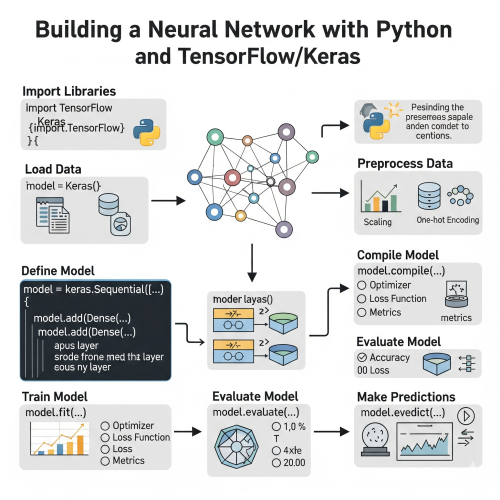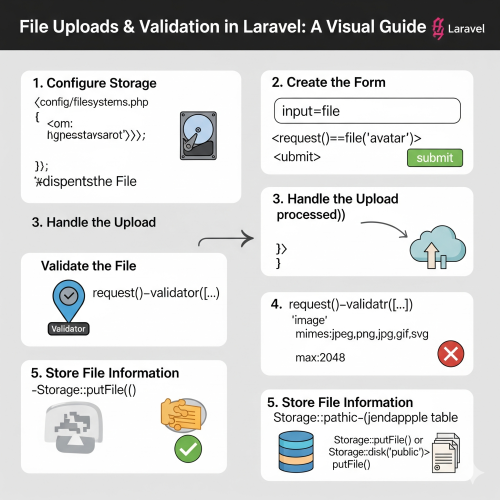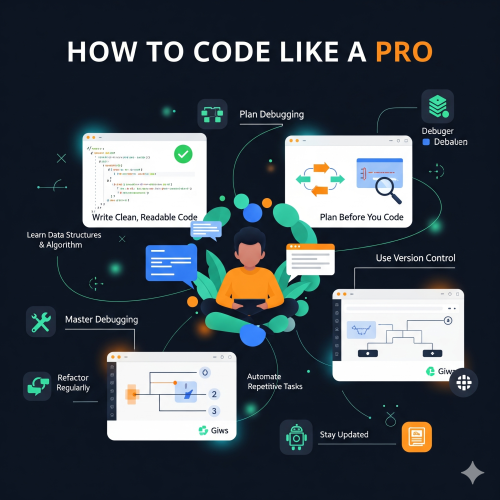Remember when having a personal assistant was a luxury reserved for CEOs and A-list celebrities? Well, plot twist – now we all have one living in our pockets, and it's got a sense of humor (sort of). From Siri's sassy comebacks to Alexa's random midnight shopping sprees, AI-powered personal assistants have gone from science fiction fantasy to everyday reality faster than you can say "Hey Google, why is my life a mess?"
But here's the million-dollar question that's keeping tech enthusiasts up at night: Are these digital companions our new best friends, or are they plotting world domination from inside our smart speakers? Spoiler alert: the answer isn't as black and white as your phone's dark mode setting.
The Rise of Our Digital Sidekicks
Let's take a trip down memory lane – all the way back to 2011 when Apple introduced Siri. Back then, we were amazed that our phones could understand basic voice commands. Fast forward to today, and we're having full conversations with ChatGPT about existential philosophy while our smart home adjusts the temperature based on our mood (okay, maybe not the mood part... yet).
The evolution has been nothing short of remarkable. What started as simple voice recognition has transformed into sophisticated AI systems that can schedule meetings, write emails, control smart homes, and even help with creative projects. According to recent studies, over 4.2 billion digital voice assistants are in use worldwide – that's more than half the global population!


The Friend Side: Why We're Falling in Love with AI
Let's start with the good news – and trust me, there's plenty of it. AI assistants have become genuinely helpful in ways that would have seemed magical just a decade ago. They're like that friend who never gets tired of your questions, never judges your 3 AM search for "how to fold a fitted sheet" (we've all been there), and actually remembers your appointments better than you do.
- 24/7 availability without coffee breaks or sick days
- Instant access to information and problem-solving capabilities
- Personalized recommendations based on your preferences and behavior
- Seamless integration with multiple devices and platforms
- Accessibility features that help people with disabilities navigate technology
- Multilingual support breaking down language barriers
The productivity boost alone is worth celebrating. I know folks who've gone from chronic overthinkers to decision-making machines, simply because they can bounce ideas off their AI assistant and get instant feedback. Need to draft an email? Your AI can help. Struggling with creative block? It's got suggestions. Want to learn a new skill? It'll create a personalized curriculum.
AI assistants have become the ultimate personal productivity hack. They don't just answer questions – they help us think through problems and explore possibilities we might never have considered on our own.
Dr. Sarah Chen, AI Researcher at Stanford
The Foe Side: When Convenience Comes with a Price
Now, before we get too cozy with our digital companions, let's address the elephant in the room – or should I say, the data-collecting microphone in the corner. While AI assistants offer incredible convenience, they also raise some legitimate concerns that deserve serious consideration.
Privacy: The Ultimate Trade-off
- Constant listening capabilities raise surveillance concerns
- Personal data collection for improving AI models and targeted advertising
- Potential for data breaches exposing sensitive information
- Unclear data retention policies and usage rights
- Cross-platform data sharing between companies and services
The privacy paradox is real: the more personal information your AI assistant knows about you, the better it can help you. But that same information could potentially be misused, hacked, or weaponized. It's like having a super-efficient butler who takes detailed notes about everything you do and might share those notes with their friends.
The Human Factor: Are We Losing Ourselves?
Here's where things get philosophically interesting (and slightly uncomfortable). As AI assistants become more sophisticated, there's growing concern about their impact on human cognition and social skills. Are we becoming too dependent on these digital crutches?
// A simple example of how AI might process and respond to user queries
class AIAssistant {
constructor() {
this.userProfile = {
preferences: [],
history: [],
context: {}
};
}
async processQuery(userInput) {
const intent = await this.analyzeIntent(userInput);
const context = this.getContextualData();
const response = await this.generateResponse(intent, context);
// Log interaction for future personalization
this.updateUserProfile(userInput, response);
return response;
}
updateUserProfile(input, response) {
this.userProfile.history.push({
query: input,
response: response,
timestamp: new Date(),
satisfaction: null // Will be updated based on user feedback
});
}
}Studies suggest that heavy reliance on AI assistants might be affecting our ability to remember information, solve problems independently, and even engage in face-to-face conversations. It's the digital equivalent of GPS navigation making us terrible at reading maps – convenient, but potentially problematic if the system fails.
Finding the Sweet Spot: Coexistence in the AI Age
So, are AI assistants friends or foes? The answer is refreshingly nuanced: they're whatever we make them. Like any powerful tool, their impact depends entirely on how we choose to use them.
The key is finding that Goldilocks zone – not too dependent, not too dismissive, but just right. Here's how we can embrace the benefits while mitigating the risks:
- Use AI assistants as thinking partners, not replacements for critical thinking
- Regularly review and adjust privacy settings to match your comfort level
- Maintain human connections and don't let AI conversations replace real relationships
- Stay informed about AI developments and their implications
- Practice digital detoxes to maintain independence from AI assistance
The future belongs to humans who can effectively collaborate with AI, not compete against it. It's about augmentation, not replacement.
Marc Benioff, CEO of Salesforce
The Road Ahead: What's Coming Next?
If you think today's AI assistants are impressive, buckle up – we're just getting started. The next generation of AI companions will be more contextually aware, emotionally intelligent, and seamlessly integrated into our lives. We're talking about AI that can read your mood, anticipate your needs, and maybe even crack better jokes than your uncle at family gatherings.
But with great power comes great responsibility (thanks, Spider-Man). As these systems become more sophisticated, the questions about privacy, dependency, and human agency will only become more pressing. The companies developing these technologies, the governments regulating them, and us as users all have roles to play in shaping this future.
The conversation about AI assistants isn't really about technology – it's about the kind of future we want to create. Do we want a world where AI amplifies human potential, or one where it gradually replaces human capabilities? The choice, thankfully, is still ours to make.
So the next time your AI assistant helps you solve a problem or makes you laugh with an unexpectedly witty response, take a moment to appreciate the marvel of technology you're interacting with. But also remember to maintain that healthy skepticism and human agency that makes us, well, human.
After all, in a world increasingly powered by artificial intelligence, our humanity might just be our most valuable asset. And no AI assistant, no matter how advanced, can replicate the beautiful messiness of being genuinely, authentically human.












Kirbywhopy
В этом интересном тексте собраны обширные сведения, которые помогут вам понять различные аспекты обсуждаемой темы. Мы разбираем детали и факты, делая акцент на важности каждого элемента. Не упустите возможность расширить свои знания и взглянуть на мир по-новому! Подробнее - https://vivod-iz-zapoya-1.ru/
Kirbywhopy
В этом информативном тексте представлены захватывающие события и факты, которые заставят вас задуматься. Мы обращаем внимание на важные моменты, которые часто остаются незамеченными, и предлагаем новые перспективы на привычные вещи. Подготовьтесь к тому, чтобы быть поглощенным увлекательными рассказами! Получить дополнительные сведения - https://vivod-iz-zapoya-1.ru/
Ronaldcip
В этой публикации мы предлагаем подробные объяснения по актуальным вопросам, чтобы помочь читателям глубже понять их. Четкость и структурированность материала сделают его удобным для усвоения и применения в повседневной жизни. Выяснить больше - https://quick-vyvod-iz-zapoya-1.ru/
CharlesDiarl
Эта обзорная заметка содержит ключевые моменты и факты по актуальным вопросам. Она поможет читателям быстро ориентироваться в теме и узнать о самых важных аспектах сегодня. Получите краткий курс по современной информации и оставайтесь в курсе событий! Изучить вопрос глубже - https://quick-vyvod-iz-zapoya-1.ru/
CharlesDiarl
В этом информативном тексте представлены захватывающие события и факты, которые заставят вас задуматься. Мы обращаем внимание на важные моменты, которые часто остаются незамеченными, и предлагаем новые перспективы на привычные вещи. Подготовьтесь к тому, чтобы быть поглощенным увлекательными рассказами! Изучить вопрос глубже - https://quick-vyvod-iz-zapoya-1.ru/